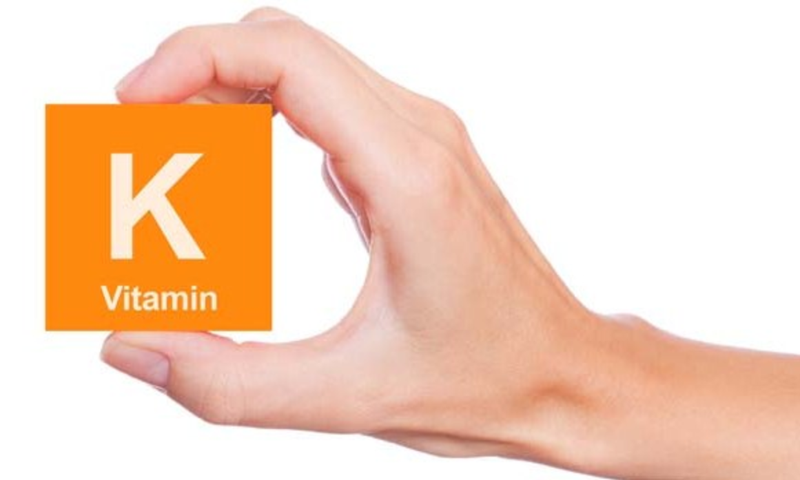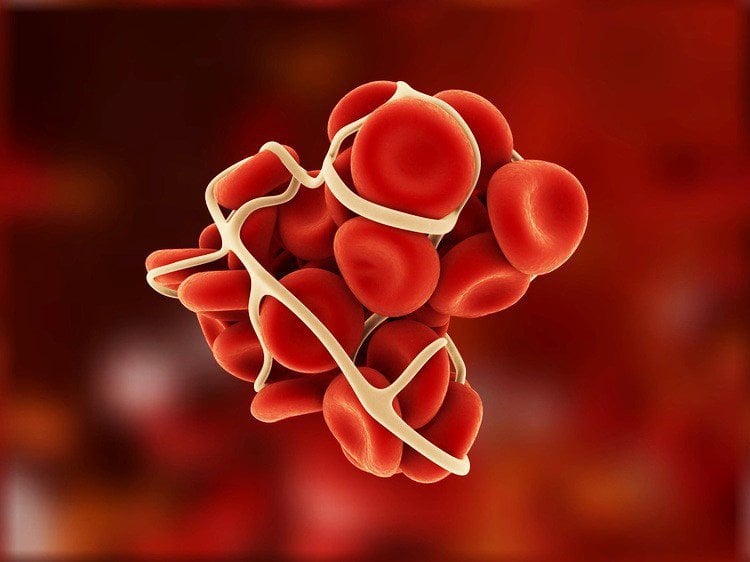9 ways to supplement vitamin K
Vitamin K is broken down very quickly and is excreted in the urine or feces. Therefore, it rarely reaches toxic levels in the body even when consumed in large quantities. Do you need vitamin K supplements? and eat more vitamin K? Let's read more 9 ways to supplement vitamin K in the article below.
1. What is Vitamin K?
Vitamin K is a fat-soluble vitamin that comes in two forms. The main type is called phylloquinone, which is found in green leafy vegetables like broccoli, kale, and spinach. The other, menaquinones, are found in some animal foods and fermented foods. Menaquinones can also be produced by bacteria in the human body. Vitamin K helps make many of the proteins needed for clotting, hemostasis, and bone building. In addition to preventing hemophilia, some important effects of vitamin K on the body can be mentioned as:
1.1. Vitamin K is a glue that helps strengthen bones Vitamin K has the ability to activate osteocalcin to help prevent osteoporosis and improve bone density of the body. When providing enough Vitamin K will limit the risk of osteoporosis in the elderly and help strengthen bones in children.
1.2. Helps prevent cancer, protect heart health Vitamin K will be divided into 2 types: Vitamin K1 - of plant origin and Vitamin K2 - of bacterial origin. Cells become stronger and more flexible by participating in the activation of Matrix GLA protein of Vitamin K. Therefore, Vitamin K2 is highly appreciated by experts for its ability to prevent atherosclerosis in the elderly. . Vessel walls will be calcified up to 30% compared to normal people if the body is deficient in vitamin K.
2. 9 ways to supplement vitamin K
2.1. Eat more green vegetables Vegetables are the best source of vitamin K in your diet, but you don't have to eat green vegetables to provide it with energy. Roasted Brussels sprouts and broccoli are packed with K, giving you about 110 micrograms per half-cup serving. Other good vegetarian options are green onions, frozen asparagus, frozen okra, raw watercress, and green cabbage. A quick vitamin K booster: Add 10 sprigs of parsley to your meal. This leafy green and others, like broccoli and kale, top the charts when it comes to vitamin K. Cooked kale Ripe is a good source of vitamin K, containing 561 micrograms in one-half cup. Whole, 1/2 cup has 250 mcg. Want to eat raw spinach in a salad or smoothie? You get about 75 micrograms for the same half-cup serving.
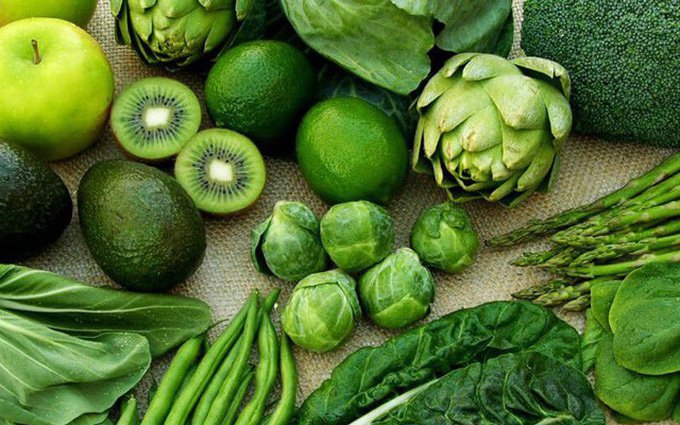
Cách bổ sung vitamin k bằng cách bổ sung nhiều loại rau xanh
2.2. Eat fruit Fruits aren't rich in vitamin K, but some can give you a quick boost. One cup of sliced avocado can give you up to 50 micrograms of vitamin K. Half a cup of stewed prunes gives you about 32 micrograms. Blueberries (14 micrograms/half cup), grapes (11 micrograms/half cup) and apples (up to 5 micrograms for a small apple) are lower in amounts but easy to add to meals on the go.
2.3. Soybean Oil This oil - and canola oil too - is rich in the most common form of vitamin K, phylloquinone. One tablespoon of soybean oil has about 25 micrograms of vitamin K and the same amount of canola oil has about 10 micrograms.
2.4. Putting fish on the menu The American Heart Association recommends eating fish, such as salmon, at least twice a week. It's packed with healthy oils, proteins, and minerals that help lower blood pressure and help prevent heart attacks and strokes. Cooked salmon and shrimp have some vitamin K, but lightly oiled canned tuna contains 37 micrograms per 3-ounce serving.
2.5. Got a glass of juice In a hurry? Instead, drink a glass of your juice. Three-quarters of a cup of carrot juice gives you a quick burst of vitamin K — about 28 micrograms. Not interested in carrots? Instead, try pomegranate juice. The same amount also has 19 micrograms. And some drinks are fortified with vitamin K. Check the label to be sure.
2.6. Try Fermented Soybeans Boiled, fermented soybeans, known as natto, have been a staple of the Japanese diet for over a century. The traditional dish has a large amount of vitamin K. Just 3 ounces gives you 850 micrograms. Research also shows that natto can slow bone mass loss in women past menopause. That means it can help prevent osteoporosis.
2.7. How you cook The amount of vitamin K you get from food depends on how you prepare it. Frozen foods - that you cook - often come in more than raw form. This may be because frozen vegetables lose some of the water, which is where vitamins are concentrated. For example, half a cup of hard-boiled frozen turnip greens will give you more than 425 micrograms. But eating raw turnip greens brings less than that.
2.8. Vitamin K is good for bones and blood Vitamin K is an essential nutrient that helps your blood clot and your bones grow the way they should. It may also help prevent osteoporosis and protect you against heart disease. You can get vitamin K from a number of foods, and most diets in the United States contain enough of the recommended daily target (90 micrograms for women and 120 micrograms for men).
2.9. Nuts Nuts are packed with protein, fiber, healthy oils, and other important nutrients that help fight inflammation and keep your heart healthy. Cashews, mixed nuts and pine nuts, in particular, give you an extra dose of vitamin K. Add pine nuts to pasta dishes, or grab a handful of cashews or mixed nuts for a mid-day snack. Help a little.
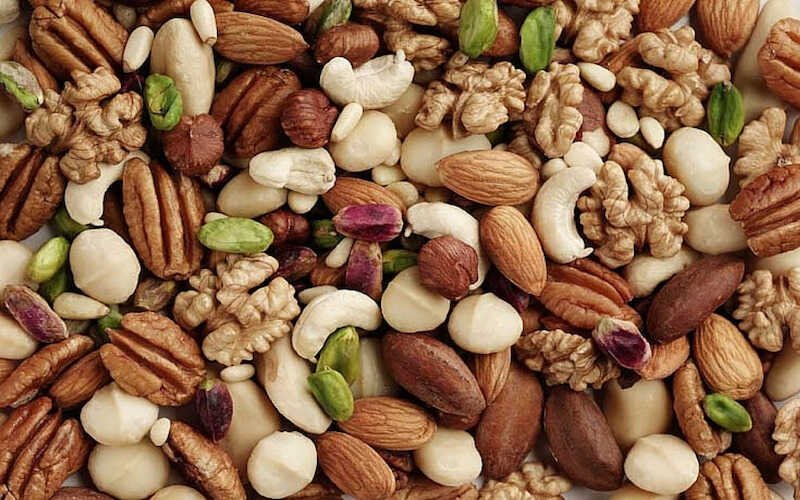
Sử dụng quả hạch là một trong các cách bổ sung vitamin k
3. What to eat with a lot of vitamin K?
3.1. Spinach, also known as spinach, contains a large amount of nutrients, including vitamin K, which brings many benefits to the body. To protect your health, you should avoid the stalks that show signs of abnormal growth, discoloration,...
Whether you eat it raw, boiled or cooked, spinach (spinach) is also a vegetable. superfoods are packed with nutrients including vitamin K.
3.2. Basil is an easy-to-find food in nature. Basil can be used raw, or purchased at a dry basil factory. One teaspoon of dried cinnamon powder will probably meet your vitamin K needs for the day. According to the recommendations of nutritionists about the body's need for vitamin K, adolescents under 18 years old need 75 micrograms/day, and over 19 years old need 120 micrograms/day.
3.3. Kale Kale is a food with health benefits such as lowering cholesterol and preventing cancer, it is rich in vitamins K, A....for your body.
3.4.Cabbage If you don't want to eat kale, cabbage is a good choice. Studies show that the amount of Vitamin K in cabbage is usually only half that of kale, but half a bowl of cabbage can provide you with enough vitamin K for the day.
3.5.Mudna Mustard is an excellent source of vitamin K. It is a popular accompaniment in many Asian countries. However, for some people, the taste of mustard will often cause an unpleasant sensation because of the pungent aroma. Therefore, it should be noted in the issue of vitamin K supplementation through mustard.
3.6. Parsley Fresh parsley is often used to garnish food and eaten as a seasoning, but few people know that just two teaspoons of parsley can meet an adult's vitamin K requirement for food. a whole day. To achieve the best results, each individual can process the parsley into many dishes such as: juice, eat raw,... If there is a need to use parsley powder, it is recommended to buy at the establishment. quality reputation.
3.7. Broccoli Broccoli is a vegetable with many uses including cancer prevention, anti-aging, and free radicals. It is also a food rich in vitamins and minerals, including vitamin K. Celery is a great food, it's both high in fiber and vitamin K.
3.8. Asparagus According to many recent studies, it has also been shown that using a few stalks of asparagus per day helps provide the body with a number of beneficial vitamins, notably Vitamin K.
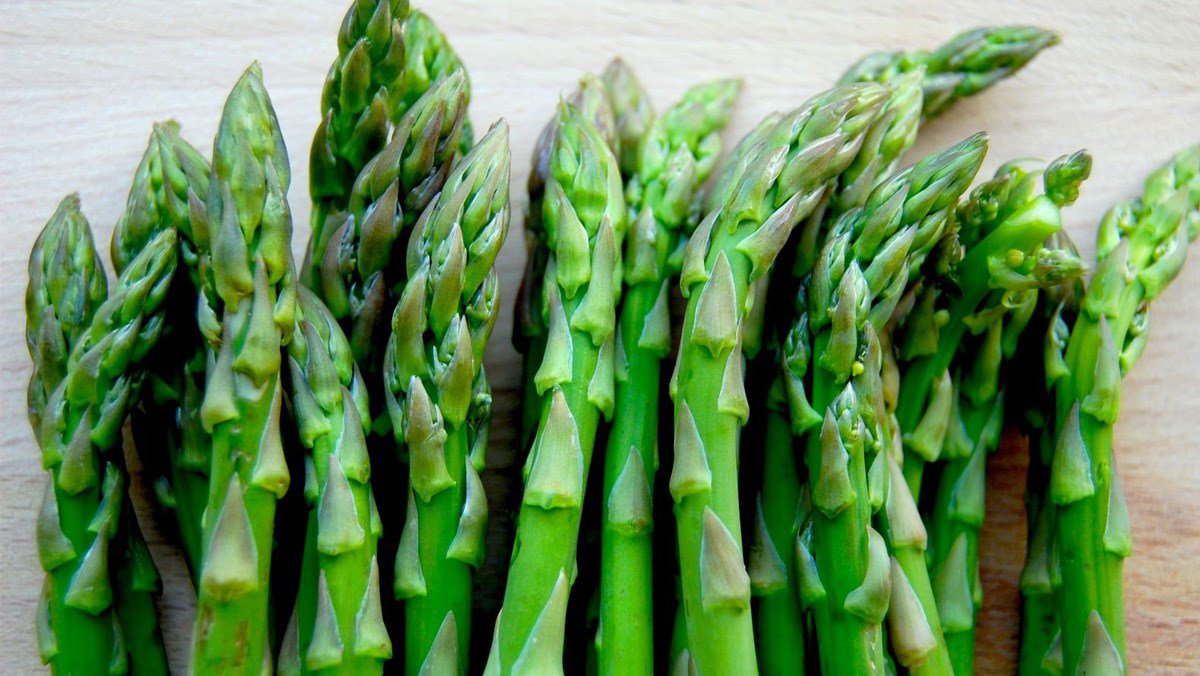
Bạn có thể bổ sung vitamin k bằng cách ăn măng tây
3.9. Celery If you need a vegetable that can be used as a herb, spice and rich in Vitamin K, fiber, ... then celery is a useful choice. To increase variety and stimulate appetite, parsley can be combined with many different fresh foods through dishes such as cooking soup, mixing, stir-frying,...
3.10. Plums are considered a rich source of Vitamin K and besides, they also help the body prevent factors that cause bone and joint dysfunction. The content of Vitamin K that will be present in 100g of plums is 59.9 micrograms.
3.11. Cucumber Cucumber contains a lot of vitamins including group K, this is an easy food to prepare and eat raw.
3.12. Lettuce Any lettuce is rich in vitamin K. It is recommended to eat salads every day to supplement vitamin K for your body.
3.13. Carrots Like cucumbers, carrots are also a good source of vitamin K and can be eaten raw.
3.14. Eggs In addition to green leafy vegetables, there are a few other foods rich in vitamin K such as eggs, this vitamin is found in egg yolks.
3.15. Chili powder Many people often think that chili powder is very hot, but this is one of the spices containing vitamin K that helps stimulate human taste. In addition, other spices, such as curry powder, cayenne pepper (red pepper) and chili powder are all thought to be food sources of vitamin K.
3.16. Olive Oil Olive oil has many health benefits and is rich in vitamin K. This nutrient is found in both canola oil and sesame oil...
3.17. Dried fruits Dried fruits like plums, blueberries, peaches, figs and grapes are all very rich food sources of vitamin K.
Cloves are a spice with a unique and distinctive flavor they have. contains a lot of vitamin K, when processing food, do not forget this spice.
Để đặt lịch khám tại viện, Quý khách vui lòng bấm số HOTLINE hoặc đặt lịch trực tiếp TẠI ĐÂY. Tải và đặt lịch khám tự động trên ứng dụng MyVinmec để quản lý, theo dõi lịch và đặt hẹn mọi lúc mọi nơi ngay trên ứng dụng.
Bài viết này được viết cho người đọc tại Sài Gòn, Hà Nội, Hồ Chí Minh, Phú Quốc, Nha Trang, Hạ Long, Hải Phòng, Đà Nẵng.


